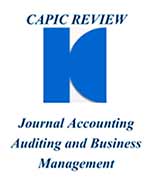Application of IFRS in Colombia and Chile: A comprehensive analysis on the quality of financial information.
Published 2021-02-03
Keywords
- accruals quality,
- earnings quality,
- international financial reporting standards
How to Cite
Abstract
The application of IFRS worldwide marked one of the most relevant regulatory changes in accounting history. Regulators of the capital markets in Latin America, not unaware of this process, also start to require the application of this accounting standard as of 2008. The evidence in the literature is contradictory regarding the effects of IFRS on reported earnings quality by firms. This article studies the impact of the application of IFRS on earnings quality for a group of 321 companies listed on the Stock Exchanges of Chile and Colombia. To do this, we analyze six quantitative metrics aimed to capture earnings quality in different dimensions. The results of the analysis show that the mandatory requirement of IFRS has decreased the level of discretion in the application of accruals, which results in an improvement in the quality of financial results. Considering that discretionary metrics are the ones that best capture the quality of financial results, the study findings allow us to conclude that the application of IFRS has had a positive effect on the quality of financial information for companies in Chile and Colombia.
Downloads
References
- Adibah Wan Ismail, W., Anuar Kamarudin, K., van Zijl, T., & Dunstan, K. (2013). Earnings quality and the adoption of IFRS-based accounting standards: Evidence from an emerging market. Asian Review of Accounting, 21(1), 53-73.
- Bryce, M., Ali, M. J., & Mather, P. R. (2015). Accounting quality in the pre-/post-IFRS adoption periods and the impact on audit committee effectiveness—Evidence from Australia. Pacific-Basin Finance Journal, 35, 163-181. https://doi.org/10.1016/j.pacfin.2014.12.002
- Conesa, I. M., Manzano, M. P., & Sánchez, H. G. (2011). La calidad del resultado pre y post-adaptación a las IFRS en México por el CINIF. (Disponible en: http://www.aeca1.org/pub/on_line/comunicaciones_aal2011/cd/54a.pdf)
- Daske, H., Hail, L., Leuz, C., & Verdi, R. (2008). Mandatory IFRS reporting around the world: Early evidence on the economic consequences. Journal of accounting research, 46(5), 1085-1142.
- Daske, H., Hail, L., Leuz, C., & Verdi, R. (2013). Adopting a label: Heterogeneity in the economic consequences around IAS/IFRS adoptions. Journal of Accounting Research, 51(3), 495-547.
- Dechow, P., Ge, W., & Schrand, C. (2010). Understanding earnings quality: A review of the proxies, their determinants and their consequences. Journal of accounting and economics, 50(2-3), 344-401.
- Dimitropoulos, P. E., Asteriou, D., Kousenidis, D., & Leventis, S. (2013). The impact of IFRS on accounting quality: Evidence from Greece. Advances in Accounting, 29(1), 108-123. https://doi.org/10.1016/j.adiac.2013.03.004
- Ho, L. J., Liao, Q., & Taylor, M. (2015). Real and Accrual‐Based earnings management in the Pre‐and Post‐IFRS pe¬riods: Evidence from china. Journal of International Financial Management & Accounting, 26(3), 294-335. http:// dx.doi.org/10.1111/jifm.12030
- Iatridis, G. (2010). International financial reporting standards and the quality of financial statement information. Inter¬national Review of Financial Analysis, 19(3), 193-204. https://doi.org/10.1016/j.irfa.2010.02.004
- Jeanjean, T., & Stolowy, H. (2008). Do accounting standards matter? An exploratory analysis of earnings management before and after IFRS adoption. Journal of accounting and public policy, 27(6), 480-494.
- Palacios Manzano, M., & Martinez Conesa, I. (2014). Assessing the impact of IFRS adaptation on earnings manage¬ment: An emerging market perspective. Transformation in Business & Economics, 13(1), 21-40. (Disponible en: http://www.transformations.knf.vu.lt/31/ge31.pdf)
- Pelucio-Grecco, M. C., Geron, C. M. S., Grecco, G. B., & Lima, J. P. C. (2014). The effect of IFRS on earnings management in Brazilian non-financial public companies. Emerging Markets Review, 21, 42-66. https://doi.or¬g/10.1016/j.ememar.2014.07.001
- Perotti, P., & Wagenhofer, A. (2014). Earnings quality measures and excess returns. Journal of business finance & accounting, 41(5-6), 545-571.
- Rudra, T., & Bhattacharjee, C. D. (2012). Does IFRs influence earnings management? Evidence from India. Journal of Management Research, 4(1), 1-13. https://doi.org/10.5296/jmr.v4i1.849
- Santana, V., Timm, A., Costa, I., & Zoboli, F. (2014). IFRS accounting quality in Latin America: A comparison with Anglo-Saxon and continental European countries and the role of cross listing in the US. (Disponible en: http://papers.ssrn.com/sol3/papers.cfm?abstract_id=2438268)
- Zéghal, D., Chtourou, S., & Sellami, Y. M. (2011). An analysis of the effect of mandatory adoption of IAS/IFRS on earnings management. Journal of International Accounting, Auditing and Taxation, 20(2), 61-72. https://doi. org/10.1016/j.intaccaudtax.2011.06.001
- Zhang, Y., Uchida, K., & Bu, H. (2013). How do accounting standards and insiders’ incentives affect earnings manage¬ment? Evidence from china. Emerging Markets Review, 16, 78-99. https://doi.org/10.1016/j.ememar.2013.04.002


































